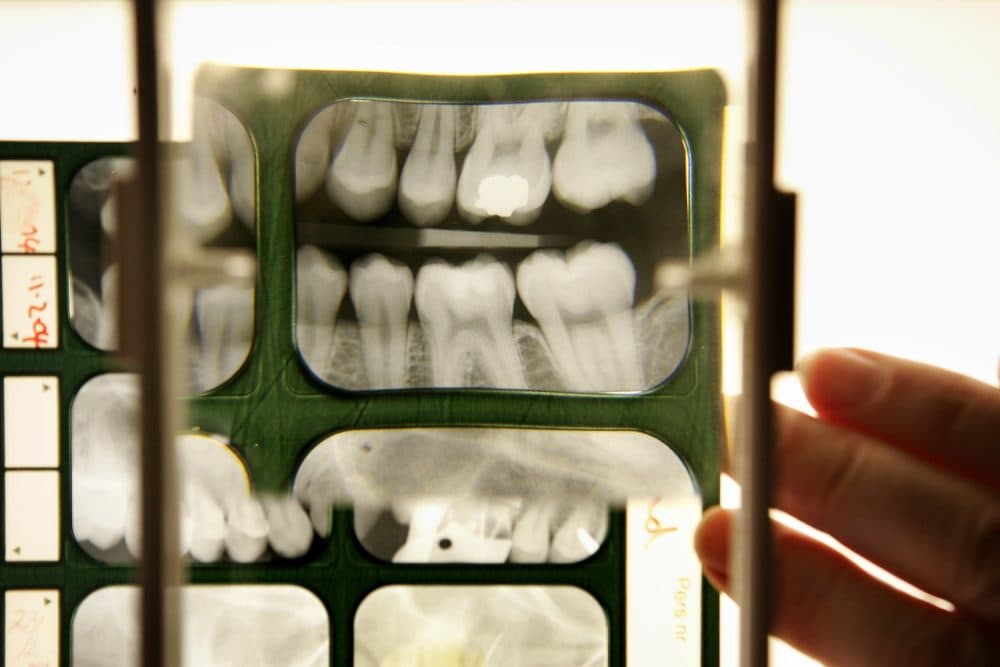Advertisement
ICE Is Checking Immigrant Kids' Teeth To Determine Their Age. Does The Science Hold Up?
Resume
Undocumented minors seeking asylum in the U.S might be met with an unusual demand: Border officials want to see their teeth.
Many unaccompanied migrants who claim to be under 18 years old must undergo a dental exam, after which some of them may be mistakenly moved to maximum-security facilities with adults instead of youth shelters with other children and teenagers.
At these adult facilities, minors lose access to the lawyers, schooling, on-site social services, and mental health care they would have received at the youth shelters, The Washington Post reports.
The dental examination is part of a widespread practice by agencies like Immigration and Customs Enforcement (ICE) and the Office of Refugee Resettlement (ORR) that use teeth to determine the age of undocumented migrants suspected of lying about their age.
Known as forensic odontology, the practice is highly controversial. The 2008 Trafficking Victims Reauthorization and Protection Act prohibits border agencies from exclusively using dental exams to determine age, but VICE reports that in 2016, ORR was found breaking that law. This is a growing cause for concern for many forensic experts who believe the science to be imprecise.
Elizabeth DiGangi, associate professor of anthropology at Binghamton University in New York, is among those experts. Professor DiGangi specializes in teeth and says that dental age estimations are flawed because they rely on the most variable tooth in the entire mouth — the wisdom tooth.
“Because of that irregularity and the variation in that tooth in and of itself, there's a very widespread of completion in terms of the years when it's actually going to be finished,” she says. “And so while it's unusual, sometimes you can have it complete in people who are as young as in their early teens, sometimes you can have it not complete in people until they are in their early 20s.”
DiGangi cautions that chronological age, the number of years since someone was born, does not always match biological age, the particular state of growth or degeneration of someone’s body.
The reason? “Because of your individual genetics, because of environmental variables, that maybe you have been exposed to that others have not been exposed to,” she says. “Even something like your level of psychosocial stress, all of those things are going to impact how close that relationship is between your biological age and your chronological age.”
For these reasons, she warns that “we can never pinpoint with 100% certainty if somebody is a particular age.”
But that hasn’t stopped federal agents from using forensic odontology to make age determinations.
In 2017, Jose Antonio Hernandez Vasquez, a then 17-year-old asylum seeker from Guatemala, was moved to a maximum-security adult detention facility after undergoing a dental exam, according to The Washington Post.
Vasquez spent 10 months living amongst adults and was forced to represent himself in his own deportation case without the legal support he should have received as a minor. He has since been diagnosed with PTSD.
As for the ethical implications of the use of forensic odontology at the border, DiGangi says dental reports have “serious punitive consequences.”
“In some cases, some of those children may have been deported,” she says. “I think there are some ethical questions that the forensic odontologists doing this work have to seriously consider before they continue working for ICE.”
Kalyani Saxena produced and edited this interview for broadcast with Mark Navin and Kathleen McKenna. Saxena adapted it for the web.
This segment aired on October 30, 2019.